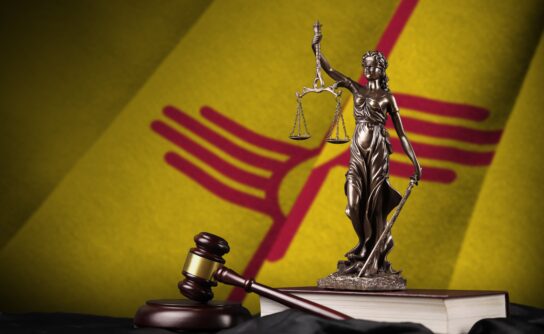Each day our lives become increasingly more online. People have multiple online profiles and accounts for virtually anything and everything in their lives. These digital assets are often one of the last things people think about in estate planning. When someone passes, their online activity is paused, but their online presence continues to exist. Loved ones dealing loss are already overwhelmed with the idea of burial, property, probate, wills, trusts, and the like. So, what can you do to ensure that your loved ones can protect, preserve, or remove your digital assets the way you want?
What is a “digital asset”?
A digital asset, as defined by the Uniform Probate Code Section 871(h), is an electronic record in which an individual has a right or an interest. This term does not include an underlying asset or liability unless the asset or liability is itself an electronic record. These assets can include: social media, banking or money accounts, 401k, IRAs, insurance, credit monitoring services, subscription services, and more.
What steps should you take to ensure your digital assets are protected?
Gather your digital asset information: logins, passwords, codes, security questions, and incorporate that information into your will, or preferably a Trust, or otherwise somewhere you feel that information is protected and safe. Create a provision in your estate planning tool of choice to dictate how your digital assets will be disposed of or cared for. Some websites even allow you to name an executor for your account. Look in your profile settings to find out if the platform you are using allows this.
What if you do not want anyone you know to have access to some of your digital assets? You can appoint a digital executor whose sole purpose is to manage your digital assets separately from the main executor of the estate and provide them with your digital information. You can give that information to a trusted third party like an attorney or other fiduciary to keep on your behalf. Create a file with explicit instructions on how you want your digital assets to be disposed of or accessed. This will be especially useful for digital assets tied to money or investments.
Unfortunately, life is unpredictable. Like most others, you or your loved ones have put off this task for another day promising to return when you have the time or energy to think about it. By the time you realize you need this information, the person with access to these accounts is gone, and now, you have no way of knowing how to retrieve anything or even where to start.
In some instances, a loved one may request the online platform to pause any online activity related to the account after the owner passes. In other cases, a formal letter and death certificate may need to be presented—either mailed or emailed to the company’s estate department in order for the company to shut down the account.
But what happens to the online account, subscription, or webpage when neither of these options work? Who should have access to all of these accounts, and who owns the content after the
creator or owner dies? What happens to the payment and funds? Without guidance from the decedent, it is hard to figure out.
The Revised Uniform Fiduciary Access to Digital Assets Act (RUFADAA)
To get a handle on all of these concerns, the Uniform Law Commission (ULC) came up with the Revised Uniform Fiduciary Access to Digital Assets Act (RUFADAA)*1. Under the RUFADAA, the executor or fiduciary of an estate is granted the ability to access accounts and information of the decedent with the exception of certain electronic communications (private emails, chats, and tweets) which cannot be accessed unless the decedent explicitly consented to the disclosure. To access any digital assets, the executor must petition the court and explain why accessing the digital account is needed to wrap up the estate, and the Court may limit their compliance by providing only access that is reasonably necessary to wrap up the estate. Executors are not allowed access to deleted assets or joint accounts.
Under the RUFADAA, a court order is required for an executor to obtain access to digital assets when there is no specific instruction providing the executor with access. This means that the estate of the decedent will need to go through probate before a court before the family of the decedent can obtain access to these accounts.
Note that if an executor of the estate is not granted specific instruction in a will, trust, or other instrument to access these accounts, then the custodian or site owner may look to the terms-of-service agreements to determine whether to comply with requests to access the information. The custodian also has the right to grant full access or partial access at its discretion.
To avoid the often lengthy and public process of probate, it is highly recommended that you and your loved ones establish an estate plan with all the necessary information and instructions to access your digital assets before it is too late. Consider adding login information to your estate plan so that your loved ones are not left scrambling to preserve, protect, or remove your digital footprint.
If you have additional questions about this or any other estate planning tools, consider giving us a call and chat with one of our specialized attorneys today.
1 The first version of the Uniform Fiduciary Access to Digital Assets Act was met with great opposition because it was too broad in allowing an executor or personal representative complete access to an incapacitated or deceased person’s digital assets. The revised version has since been adopted by the Uniform Law Commission in conformity with privacy laws and expectations.
Law 4 Small Business (L4SB). A Slingshot company. A little law now can save a lot later.




